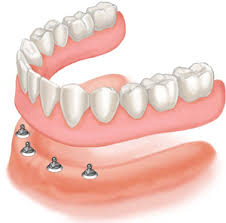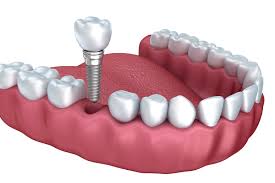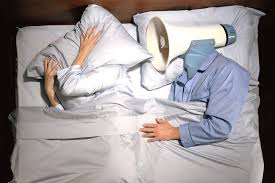Implant Dentures Can Transform Your Life

Implant dentures are a type of over-denture attached to and supported by implants. They are used when a dental patient does not have teeth in his or her jaw, but does have enough jaw bone to support the implants. This type of denture stays secure by means of special attachments that snap directly onto implant attachments. The results can be life transforming.
The implant is created by means of a titanium replacement tooth root, an abutment that connects the root to the replacement tooth, and the replacement tooth that sits above the gum line.
Reasons to Choose Dental Implants dental implant

Patients often wonder how to decide if they should get a dental implant or use dentures to replace missing teeth. The decision depends on the personal circumstances of the patient. Here are some reasons to consider choosing dental implants.
Continue reading “Reasons to Choose Dental Implants dental implant”
What Your Dentist Wants You to Know About Fluoride

You want your teeth to last a lifetime, and one substance that helps your teeth is fluoride. Fluoride strengthens teeth enamel and helps to prevent tooth decay. It’s available from several sources including toothpaste and drinking water. By using fluoride at home and having fluoride treatments at the dentist’s office, you get stronger and healthier teeth.
What is Fluoride?
Fluoride is a mineral that occurs naturally in soil, water, food and the earth’s crust. By eating foods with fluoride or drinking fluoridated water, the outer surface of your teeth (called the enamel) absorbs the fluoride. The most important facts about fluoride are that it makes the teeth stronger, and rebuilds weakened enamel. Fluoride also makes the teeth more resistant to the acids that lead to cavities. Fluoride can even reverse the early signs of tooth decay, reports the American Dental Association.
How Do I Get Fluoride?
Many people get fluoride from the public water supply. Just by drinking tap water, you get fluoride for your teeth. Most toothpastes also contain fluoride, and many mouth washes also have fluoride. You can also get a fluoride treatment in your dentist’s office. The dentist or dental hygienist applies a fluoride gel or foam to your teeth, and leave it on for a few minutes. This treatment usually occurs when you get your teeth cleaned.
Is Fluoride Safe?
Many respected organizations support the use of fluoride in dental care. The American Dental Association, the Centers for Disease Control (CDC) and the World Health Organization all have decades of research that prove that fluoride is safe for both children and adults. In fact, the American Dental Association reports that fluoridated water helps to prevent more than 25% of all cavities.
People do benefit from fluoride. It’s an effective way to prevent tooth decay and strengthen the enamel. For more information about taking care of your teeth, call our office for an appointment.
Types of Sleep Apnea Appliances

Sleep apnea, which involves breathing that’s interrupted during sleep, is a severe sleep disorder that affects 22 million Americans. Breathing can be interrupted as much as hundreds of time, which causes the brain, as well as other areas of the body, to not receive enough oxygen. One way to treat this sleep disorder is by using CPAP (continuous positive airway pressure) therapy. This entails using a machine that delivers air pressure through a mask that’s been placed over a person’s nose while sleeping.
But many people find the CPAP therapy too bulky and don’t feel comfortable wearing a mask to bed. Fortunately, there are sleep apnea appliances that can be used effectively in keeping the upper airway passages open, so obstructive sleep apnea is prevented. If you suffer from sleep apnea and find wearing a CPAC mask cumbersome, here’s what you need to know, regarding the two primary types of sleep apnea appliances.
Mandibular Advancement Devices
Although there are several sleep apnea appliances, the two main categories are the mandibular advancement device (MAD) and a tongue retaining device (TRD). A mandibular advancement device, which is the most common one used for treating OSA (obstructive sleep apnea), resembles a mouth guard used by athletes. This dental appliance works by holding the lower jaw (mandible) forward so that a user’s airway is opened.
It fits over the lower and upper dental arches and has hinges, or small adjustable “stops”, that ease the lower jaw forward. As a result, the soft palate and tongue are stabilized. Using a MAD also helps to strengthen the airway as it makes the tongue muscle more active, as well other airway muscles.
Tongue Retaining Device
A TRD is similar to a MAD as they both hold the tongue forward. However, unlike a MAD that moves a user’s jaw forward, a TRD pulls a user’s tongue forward. In other words, a TRD has direct control over the tongue. What’s more, it takes more time to get used to wearing a TRD.
Considerations and Warnings
- Failing to treat sleep apnea can result in failing to perform well at school or work. It can even be fatal if you stop breathing long enough or fall asleep while driving.
- Untreated sleep apnea can also lead to several health issues, such as stroke, heart failure or heart attacks, hypertension (high blood pressure), diabetes and headaches.
- “Over-the-counter” or “boil-and-bite” sleep apnea appliances can be found in drug stores and on the internet, but they typically are less effective than custom-made oral appliances.
- You may be missing our on feeling good again. The fatigue you are experiencing may not be due to getting older but that your sleep is interupted by sleep apnea and preventing you from getting a proper rest.
To find out more about a sleep apnea appliance, call Sheridan Dental. Besides treating sleep apnea and snoring, we offer a wide range of dental services, such as TMJ treatment, porcelain veneers, neuromuscular dentistry and other treatments. Please contact us.




